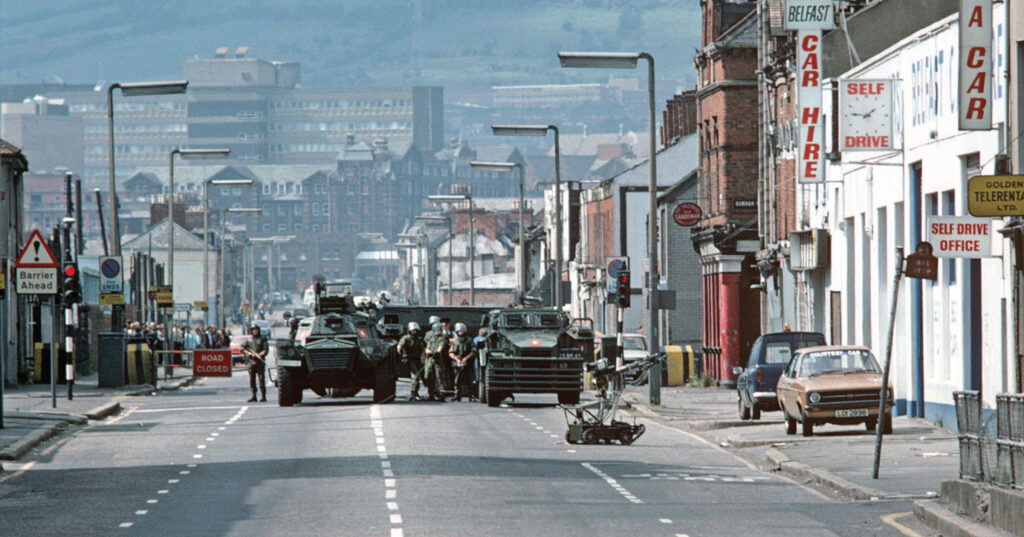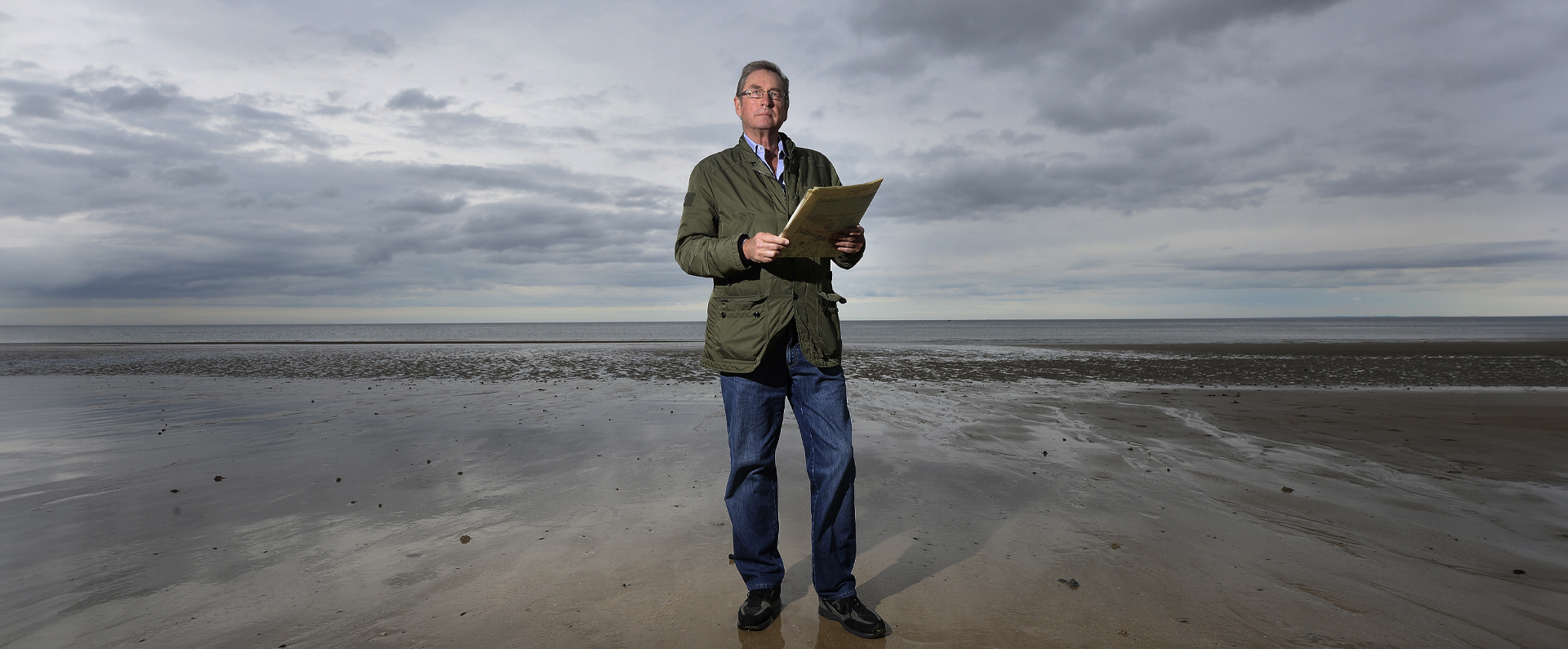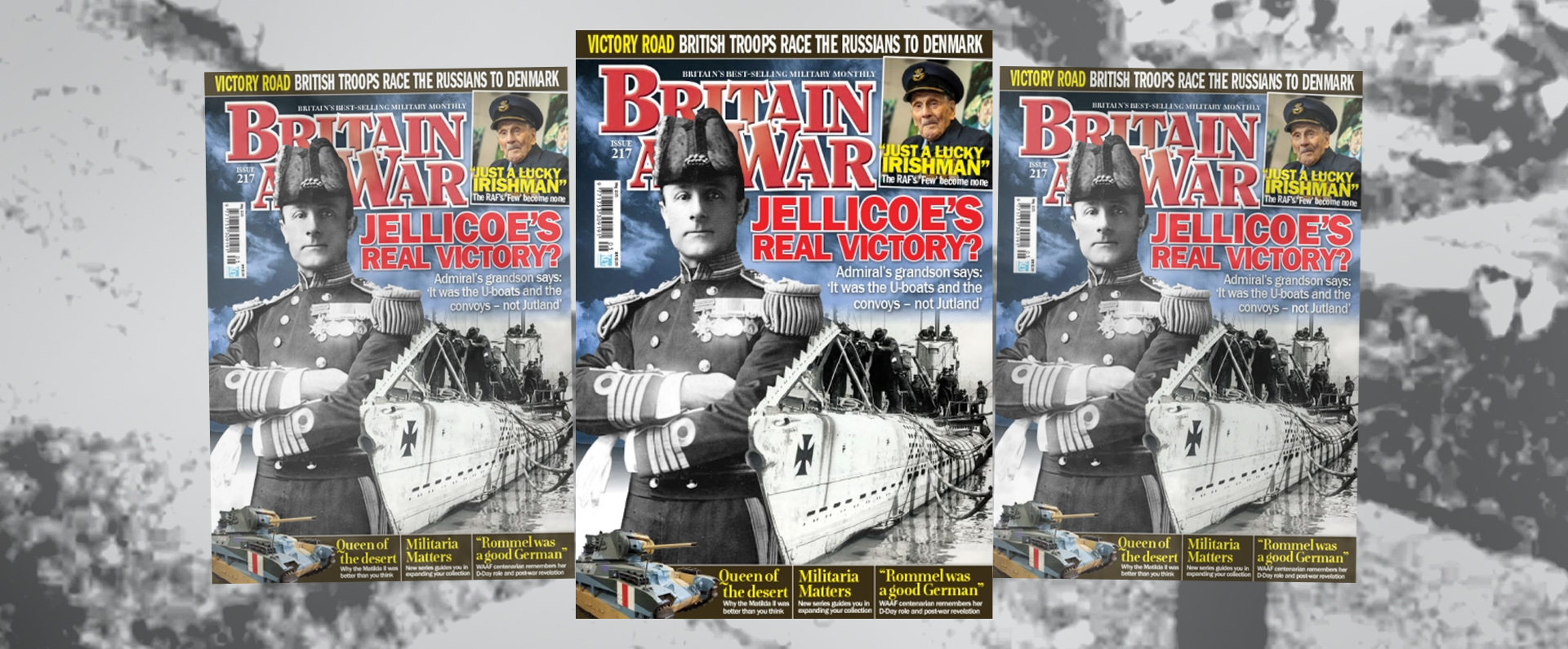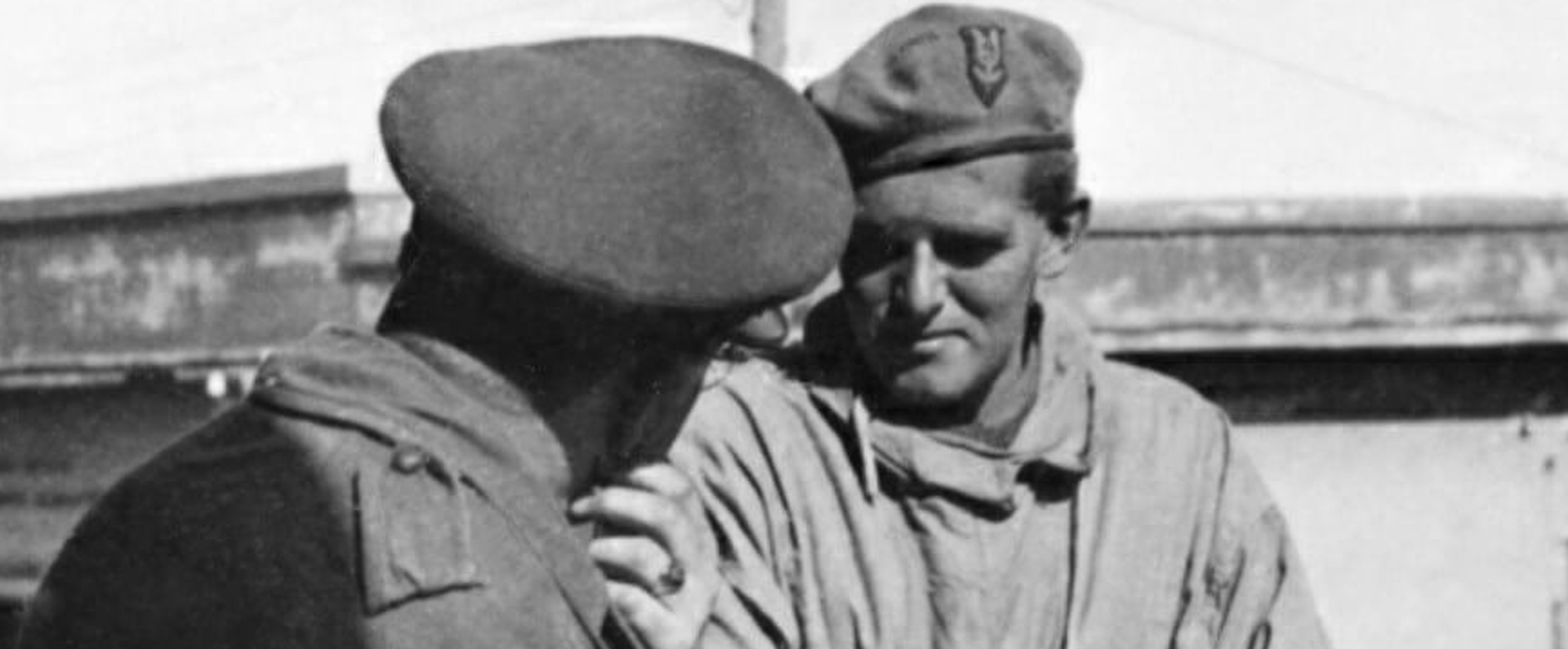
Published in Britain at War in July 2022.
Warrant Officer Class 1 Barry Johnson GC
Nobody had been awarded the George Cross (GC) for well over a decade when Warrant Officer Class 1 (Staff Sergeant Major) Barry Johnson broke the trend for a terrifying incident in Northern Ireland during the Troubles. Indeed, few living people in the entire history of the medal could have come closer to receiving the gallantry award posthumously.
Johnson was born in Wood Green, north London, on January 25 1952. Until he was an adult aged around forty, he thought his step-father was his natural father. However, he later found out that his true father, a worker in a stained-glass studio, had separated from his mother shortly after he was born. He was brought up and educated in Buckinghamshire, where he had a half-brother.
Johnson left school at 15 determined to embark on a “uniformed career” in the military. He arrived at the Army Apprentices College in Chepstow, south Wales, in April 1967 and embarked on a three-year apprenticeship as an ammunition technician, before joining the Royal Army Ordnance Corps. He married in 1971 and went on to have two children. After postings to Germany, Canada and Belize, he did a tour of Northern Ireland, as a Staff Sergeant, and a second tour in 1989 as a Warrant Officer. Just months before the first Northern Ireland tour, he had undergone a special course in Explosive Ordnance Disposal and by his second tour he was a veteran of dealing with suspect devices.
Both tours of the Province – where 17 ammunition technicians lost their lives during the Troubles – were particularly busy and hazardous. Time and again, he dealt with bombs, weapons’ finds, false alarms and hoaxes. During his two tours, he dealt with 80 disposal tasks, including the safe neutralisation of 12 live devices.
On October 7 1989, Johnson was called to a van which had been abandoned in the middle of a housing estate in Londonderry. The driver and passenger of the vehicle had been seen behaving suspiciously by an Army patrol. The van was then driven away at speed in the late afternoon: the two occupants soon abandoned the vehicle and fled, although they were later detained.
By the time Johnson and his team arrived the security forces had already evacuated the area – including moving patients from a nearby hospital to a safe area. Someone had already looked through the window of the van and seen six barrels loaded with mortars. The republican extremists intended target was the security forces.
Johnson, then 38, knew he had to deal with the vehicle at the scene, rather than risk moving it. The nearby locations of houses, a hospital and a barracks meant time was short. He knew he had to look for the “firing mechanism” – a timer in a small wooden box – and disable it with a remote-controlled “wheelbarrow” device on caterpillar tracks. The device had a camera, disruptor and shotgun. Once the vehicle was disabled, the six barrels had to be dismantled – but this was a manual, not a mechanical, task. With his assistant, he first lifted the device from the van and placed it on the ground. Then he placed the firing tubes so they faced away from buildings in case they detonated unexpectedly. Johnson then made sure his colleagues were well away from the scene in case of an accident.
In the dark and in bitterly cold drizzle, Johnson had successfully tackled five of the mortars, but the sixth detonated, without warning, with a huge blast. At his Devon home, Johnson recalled that day for me in astonishing detail when interviewed for my book George Cross Heroes. “You can’t imagine the sound of an explosion when you are that close to it. It is a violent detonation. I saw a boiling cloud of flame engulf me with red-hot sand being blown past my face. That’s a vivid memory that will stay with me for ever.
“I found myself on the ground in a ditch. I was in a world of silence and darkness. I was so disorientated I didn’t know whether I was still alive or not. Eventually, realising I was there thinking quite logically, I must still be alive and it was probably best if I exited the area pretty sharpish and got to safety.
“But before the sound [of the blast] had died away I knew I was in a situation that was life-changing – where I would never be quite the same again because of the gravity of it all. I went to stand up, but I toppled over. It was then that I realised I had some other injuries that I couldn’t really identify. Everything was hurting: face, hands, legs but what dawned on me was that I hadn’t taken a breath since the explosion. The actual explosion had clasped my chest so I couldn’t breathe and that was more worrying than anything else. I started to feel dizzy and it took a while to re-start my breathing. It took real concentration: the only way I could do it was to breathe out slightly and then breathe back in slightly more. I gradually increased it through short breathes and managed to get my breathing going. I was on my own and I couldn’t see a thing.
“But then I heard Army boots running towards me and so I knew someone was coming to assist. Two lads picked me up and took me back to the ICP [Incident Command Post]. I was probably in a mess. I could hear my number two shouting over the radio for an ambulance, which turned up pretty promptly. Then we took a hectic drive to the hospital in Londonderry which was almost as frightening as everything else that had happened. I was on a stretcher in the back of the vehicle and we were screaming around corners. At that point, once I had arrived at the hospital, I started to drift in an out of consciousness.”
After a night or two, he was transferred to Musgrave Park Hospital, Belfast. His worst injuries were to both eyes. Both his legs were in plaster because they were broken and he had forty one stitches holding together a mass of facial injuries. Yet Johnson was largely oblivious to such injuries: instead he repeatedly asked the doctors to make saving his eyesight their priority.
He underwent several operations on his eyes and stayed in hospital in Belfast for more than two months. His wife, Maria, occasionally flew over to be with him, but she mainly had to look after their school-age children. His eyes, which had sealed shut for days, remained his greatest problem. To start with it seemed his left eye was less badly damaged. “All the surgical effort went it to saving that eye but right at the end of the process – and after a number of operations – my retina detached and so I went blind [for good] in that eye. Then the priority switched to trying to save my right eye. I had operations on that and eventually I got partial visions back in that eye. Interspersed with operations on my leg – including bone grafts and muscle transplants – I had eight operations on my two eyes.
“That was ample because the anaesthetic wears you down after a while. But I was young and fit and so they used to wheel me down [to the operating theatre] from time to time to have another go [at saving his eyesight]. In Musgrave Park Hospital, I used to take phone calls from people in a small room. Sat there, I could see a pink sign on the wall which over the days was getting clearer and clearer. And after a few weeks I could read what it said: ‘No smoking’. That was a marvellous moment. But mainly I had audio books or my wife would read books and newspapers to me: she did a marvellous job.’
Johnson’s aim was always to be back in Britain for Christmas Day. He met the deadline and was case-vaced back to Woolwich military hospital in south-east London. He was soon on crutches and was discharged days before Christmas Day to Didcot, Oxfordshire.
His family had been based in Germany while he was in Northern Ireland, but they moved back to the UK after the blast. Johnson recalled: “I had a great determination to get back to work. It was one of my guiding aims – to get fit enough to be able to work again. It was something I focussed on. It was good: had I not had something to focus on I may have given up a bit. And I did get back that next year – 1990. It was an office job on research and development. I wasn’t physically well enough to have tackled another device and it wouldn’t have been fair on me to ask me to try. But I did a year’s good work before I finally retired, aged forty.”
He had found out on November 5 1990, after he was back at work developing Explosive Ordnance Disposal equipment, that he was to receive the GC and that it would be announced the next day. It had not crossed his mind that he would receive a gallantry award and when he was asked to see his commanding officer, Brigadier Derek Baughan OBE, the Director of Land Service Ammunition, Johnson was convinced that he was in trouble.
In his CO’s ground-floor office at Didcot, the Brigadier told Johnson he had “great pleasure in informing” him that he had been awarded the GC. He said the previous GC for the “trade” had been for George Styles in 1972. Johnson said: “I went home and told the wife and she said: ‘That’s nice. Have a cup of tea’. The following day it was arranged for me to go to London and meet the press. It was quite big news for a couple of days. I remember travelling on the train down to London and this chap opposite me had a paper with a huge picture of me on the front page but he didn’t recognise me. That amused me.”
A lengthy citation for his award ended with a tribute to his sense of duty and dedication as he lay there critically injured after the blast. “Such was his courage and determination to ensure that the task was completed safely that, although in great pain, he refused to be evacuated until he had carefully briefed his assistant on the precise details of the device so that the operation could be safely completed by a replacement operator.”
His investiture was on December 11 1990 at Buckingham Palace when he received his award from the Queen. He was given permission to have not just the usual one guest but three: his wife Maria, and their two children, Bevan and Adele. Johnson moved to Devon in 1992 to enjoy his retirement. Despite having the physical and mental scars from the day he almost died, he has enjoyed walking, cycling, fishing and photography. Johnson, now 70, and his wife, who celebrated their golden wedding anniversary last year, have four grandchildren and two great-grandchildren.
Download a PDF of the original Britain At War article
For more information, visit:
LordAshcroftOnBravery.com


